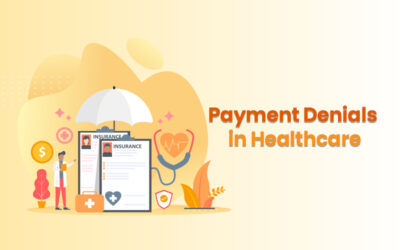Patient satisfaction has become a critical measure of success for healthcare providers. Insurance plays a vital role in determining the financial aspects of patient care. Insurance verification services involve a series of steps for determining patient coverage and financial responsibilities to facilitate a smooth financial process for both healthcare providers and patients. Proper patient eligibility verification not only helps avoid claim denials or resubmission, but also elevates the patient experience, and increase patient satisfaction.


Eliminate surprises and boost patient satisfaction with our insurance eligibility verification services!
How does Health Insurance Eligibility Verification benefit Patients?
Insurance verification has the potential to influence several key aspects of the patient experience and impact patient satisfaction:
Ensures Financial Transparency
One key advantage of verification of patient benefits is that it can reduce financial surprises. “When patients have accurate benefits provided well before their visit, they tend to be happier because they know what to expect”, says Natalie Tornese, CPC, OSI’s Director of Revenue Cycle Management – Healthcare Division.
Without patient eligibility verification, the patient might be unaware of certain details related to their coverage. This lack of information could lead to unexpected and potentially significant financial surprises after the procedure.
By checking insurance eligibility properly beforehand, you can ensure that patients have a clear understanding of their coverage and be financially prepared. For instance, you can inform patients about any out-of-pocket expenses such as deductible amounts, co-pays, or services not covered by their plan and which they may need to pay out of pocket for. This proactive approach helps in reducing the likelihood of patients being caught off guard by unexpected costs, contributing to a more transparent healthcare financial experience.
Enhances Access to Care
Insurance verification ensures that patients have access to the healthcare services they need. By confirming coverage, you can determine if a particular treatment or procedure is covered by the patient’s insurance plan and allows practices to direct patients towards treatments covered by their plan. This helps avoid unnecessary delays or denials of care, allowing patients to receive the necessary treatments in a timely manner and improving their overall experience. Additionally, you can help them understand the financial consequences if they opt for a treatment that isn’t covered.
Drives Informed Decision Making
Insurance verification helps patients make smart healthcare choices. It gives them information about what their insurance covers, so they can pick treatments that fit their budget. For example, they might choose generic medicines or covered alternatives. Checking coverage is beneficial for people with ongoing health needs. They can check if insurance pays for follow-up visits and medicines, ensuring continuity of care. Also, knowing which physicians are in their insurance network helps avoid surprise bills from out-of-network providers. In short, insurance verification guides patients to make informed and cost-effective healthcare decisions.
Reduced Administrative Hassles
Efficient insurance verification processes minimize administrative burdens on both patients and healthcare providers. By streamlining the verification process, patients spend less time filling out paperwork or providing additional documentation, resulting in a smoother and more convenient experience. Likewise, you can focus more on delivering quality care rather than dealing with insurance-related administrative tasks, leading to increased patient satisfaction.
Improved Communication
Insurance verification often involves communication between patients, providers, and insurance companies. Specialists thoroughly discuss insurance policies to ensure patients have a clear understanding of elements such as deductibles, co-pays, and out-of-pocket expenses. In addition to clarifying coverage details, effective and straightforward communication regarding insurance eligibility can help resolve billing issues and address any questions or concerns patients may have. This fosters trust and confidence in your medical practice, leading to improved patient satisfaction.
Efficient Billing and Claims Processing
Accurate insurance verification supports smoother billing and claims processes. When the claim includes all the necessary information, aligning with the terms of the insurance policy, the provider can submit the claim to the insurance company with confidence. This accuracy expedites the processing of the claim by the insurance company.
When insurance information is verified upfront, it reduces the likelihood of claim denials or delays. This results in fewer billing errors and ensures that patients are not burdened with unexpected charges or complicated reimbursement procedures. An optimized billing and claims process positively impacts patient satisfaction by minimizing financial stress and promoting a more efficient healthcare experience.
Why Pre-appointment Insurance Verification is Important
Insurance policies and coverage details may undergo frequent changes. Conducting a pre-appointment verification of patient insurance information enables you to confirm you have the latest and precise details on record. This verification covers checking the patient’s insurance plan, policy number, coverage dates, and any particular requirements or limitations.
“We work 3 days ahead to ensure our clients have the time to provide their patients’ benefits before the visit. The patient then knows exactly what their out of pocket costs will be so there are no surprises”, explains Natalie.
By recognizing and addressing the impact of insurance verification on these specific aspects of the patient experience, healthcare providers can proactively enhance patient satisfaction and deliver high-quality care.


Boost patient satisfaction and revenue with hassle-free insurance eligibility verification!




